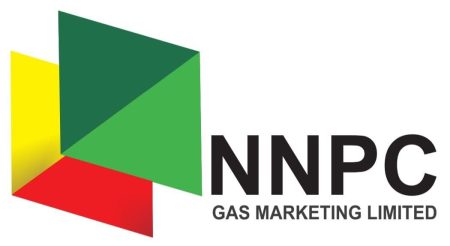
Professor Chijioke Nwaozuzu
14 June 2015, Sweetcrude, Port Harcourt – This subject matter has been on the policy agenda since the General Olusegun Obasanjo’s administration, and is still a major decision point for the new General Mohammadu Buhari’s administration. I have noticed that some commentators on this issue mistake deregulation of fuels prices with the deregulation of the entire downstream petroleum sector (which comprises of refining, supply and distribution, supply and distribution infrastructure such as pipelines, depots, terminals, etc, and finally retail fuel stations).
Previous Nigerian Governments had planned to privatize national refineries because they have been operating inefficiently and far below name-plate capacity. This probably signals the imminence of deregulation of the downstream petroleum industry in Nigeria. However, deregulation needs to take into account the characteristics of the product and sector involved.
I was recently part of a dialogue on this issue, and one of the commentators said that Nigerians are enjoying the beauty of communications through mobile telephony because the sector was deregulated and that he expects a similar outcome with the deregulation of the downstream petroleum sector. I weighed in by asking him to differentiate between mobile phones and petroleum products. He replied, with gusto and verve that both were merely tradable commodities and with ‘my tongue in cheek’ I agreed with him. But here are the facts!
Petroleum products like education or training etc are classified as ‘special products’ or ‘impure public goods’ because their supply has multiplier effects on the socio-economic and political life of a community. However, unlike education the prices of petrol, diesel, and aviation kerosene, and lubricants affect the prices of all transported goods, and by extension all other services. Although such goods and services do not have the basic characteristics of public goods (e.g. roads, national defense, policing, power transmission, etc) they do however contain some public good dimensions. ‘Impure public goods’ can be freely traded in the market but require periodic regulatory interventions because they may be subject to some degree of market failure, with disastrous consequences for society.
As source of fuel, petroleum products have high energy content compared to gas and coal. Their fluidity creates economies of scale during storage. Currently, there are no adequate substitutes for petroleum fuels in transportation, and virtually none in the field of lubrication and aviation. These qualities have combined to make petroleum products the fuels of choice in modern transportation. Therefore, any disruption in fuels supply and distribution within a given location is a call for disaster and will likely result in socially undesirable outcomes.
The economics of the petroleum retail trade presents an equally unique situation. The demand for petroleum products is not price elastic, i.e. an increase in price does not produces a corresponding decrease in demand or volume consumed. Similarly, a decrease in price does not produce a corresponding increase in demand or volume consumed. Petroleum products are similar to tobacco and alcoholic drinks (due to their addictive nature) in the sense that an increase in price does not produce a corresponding decrease in demand or quantity consumed. Hence, most Western Governments tend to derive significant revenues from imposing high taxes on tobacco products, wines, beers and spirits. Government’s usual justification is that for health care reasons, they are compelled to impose these high taxes to discourage the abuse of these products.
However, these governments can afford to levy high taxes on tobacco, wines and spirits, because their prices do not affect the prices of other consumer goods. However, petroleum products are dissimilar to tobacco, wine, beers, and spirits in the sense that a decrease in the prices of these products can produce a corresponding increase in demand or quantities consumed. This unique economics of petroleum products has been a source of potential abuse by non- discerning governments (either through hike in pump prices, or high fuel taxes) and by fuel retailers (through high pump prices) where the prices are unregulated.
Therefore, under a deregulated downstream petroleum regime, the most important aspect that the regulatory agencies have to keep under close watch is the pricing of petrol, diesel and kerosene (i.e. reregulation). Parallel pricing or price leadership are regular features of petroleum products retail market. Theoretically, these pricing mechanisms are characteristics of markets where goods and services produced and sold by each company are close substitutes (i.e. little product differentiation) and where companies are subjects to the same demand and supply conditions. As a result, no competitor can afford to lose market share by refusing to match price reductions by the others. Similarly, no market player can afford to miss out on profits when other competitors increase their prices. These pricing features are also present at the refining and wholesaling levels of the downstream petroleum industry, which are characterized by oligopolistic market structures.
The nature of fuel pricing supports the argument of proponents of deregulation of refining, wholesaling and retail levels of the petroleum products market because ‘competitive shake-out situations’ could lead to lower prices of petroleum prices than what consumers currently pay for now.
Generally, regulation of fuels retail prices runs contrary to the global trend towards deregulation and privatization. There are arguments for and against price regulation. Price regulation eliminates the ability of retailers to compete on price to attract customers, but rather they are compelled to compete on factors such as quality of service, reliability of fuel retail pumps, convenient location, etc. Conversely, pump price regulation eliminates price competition which otherwise would lead to price cycles (i.e. periodic fluctuations in prices). Pump price regulation also provides price certainty to both retailers and customers. However, on the balance scale, the arguments in favor of deregulation of pump prices outweigh those in favor of regulation. That is, market equilibrium price is better attained through the interaction of supply and demand forces.
Therefore, deregulation of fuel pump prices is inescapable but highly politically- sensitive, particularly in developing countries, which are usually characterized by high population growth, high level of unemployment, low per capital income, absence of a welfare system, poor public services and infrastructure development, low levels of human capital development, superstition, etc. Consequently, the issue of timing of full deregulation should be set in the context of a much broader macro – economic framework. More specifically, the deregulation of downstream petroleum industry should take account of all actions that would loosen all constraints and factors that affect both the supply and demand of petroleum products as well as recognize the need to provide a ‘social safety net’ for citizens.
The supply factors, in the case of our indigenous downstream petroleum sector tend to be more critical. Demand management factors (aimed at reducing consumption of petroleum products) such as products substitution with biofuels, compressed natural gas (CNG), liquefied natural gas (LNG) etc; improvements in the power sector; and the use of more fuel- efficient vehicles are also important but progress in these directions may not keep pace with the urgency required to attain self-sufficiency in supplies. Moreover, a petroleum downstream deregulation exercise has to be carried out in tandem with other macro-economic factors such as, infrastructure development, improvements in health- care and education, vocational training, improved transport systems, housing and water supply etc. In this way, such a deregulation exercise would convince the general public that the strains and burdens associated with such a policy are being eased, and thus earn their acceptance.
However, the revenue generated from the recent increase in the price of petrol (from N65 per litre to N97 per litre) should have been wholly devoted to fulfilling these macro- economic factors instead of being shared between the FGN, State & Local Governments under the Subsidy Reinvestment & Empowerment Programme (SURE-P). Judging from the recent past, most State & Local Governments have not used their share of crude oil export revenue in developing the country in direct proportion to their receipts, owing to the Nigerian factor (corruption & inefficiencies). If proper checks and balances are not put in place, SURE-P may just be another avenue for mismanagement due to lack of institutional capacity and ethics for implementing development activities in the public sector in Nigeria. It must be emphasized that public acceptance of full deregulation would largely depend on the success of SURE-P.
Now, let’s turn our attention to the critical supply factors to be considered in the course of deregulation: improvements in the efficiency of domestic supplies; liberalization of product supplies; Brownfield refinery expansion (i.e. expansion of existing refineries); and Greenfield refinery development (i.e. new refineries construction). A fully deregulated regime would have been achieved when existing refineries are repaired, privatized and expanded; and new refineries constructed (private and public / private partnership-based refineries); and pipelines privatized. Currently, it is difficult to determine the scope of Brown-field refineries expansion. However, this could be evaluated by qualified engineering consultants working in concert with the refinery operation managers.
It may be appropriate, at this juncture, to mention a few international developments in the petroleum sector than may suggest that Nigeria should focus more now on the downstream sector of its oil and gas industry. The US and Western Europe account for bulk of Nigeria’s oil exports and have invented a technology (fracking technique) for developing the shale oil and gas in their jurisdictions. Due to the ‘global warming phenomenon’ and ‘attendant environmental directives’ based on the Kyoto Protocol, these countries have since commenced measures to reduce their dependence on fossil fuels. Future fuels would be mainly gas; shale oil, and biofuels. Vehicles that run on CNG, biofuels, fuel cells, electric current, or hybrids of these, etc are currently being tested and perfected. Hybrid and electric-powered vehicles are already in use in some parts of the US. Pilot tests are being carried out on vehicles that run on hydrogen. Wind and solar forms of energy are being harnessed in increasing frequency. The fuel mix dynamics is rapidly changing and a new paradigm will soon emerge.
As I have mentioned in some of my previous articles, it is noteworthy that the world did not switch from biomass energy to coal because there was no more firewood to burn. Similarly, the world switched from coal to fossil fuels not because coal resources were exhausted. In the same breath, the ‘global warming phenomenon’ has dictated that the world switch from fossil fuel to something else. As a nation, these developments will impact us and we need to adapt in time. The only way forward would be to minimize emphasis on importation of refined petroleum products, the export of crude oil and LNG and rather domesticate indigenous oil & gas resources by encouraging the construction of new refineries and petrochemical plants, ammonia and fertilizer plants, etc, thereby converting these resources to secondary and tertiary products. The tasks ahead are quite daunting, challenging and enormous. These are tasks for relevant and patriotic technocrats! ‘Politics as usual’ is not an option, at a time like this!
*Contributed by Prof Chijioke Nwaozuzu, a Downstream Petroleum Economics & Policy Expert and Deputy-Director at Emerald Energy Institute for Energy & Petroleum Economics, Policy, & Strategic Studies, University of Port Harcourt. Email: cnwaozuzu@gmail.com. Tel: 070 6874 3617 (SMS Only).



